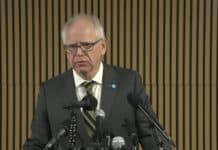
(Daily Caller News Foundation) — Cannabis use disorder, also known as marijuana addiction, was strongly tied to psychiatric problems, including psychotic symptoms and bipolar disorder, in a population-based study of Danish citizens’ medical records from 1995 to 2021.
The study, which analyzed data of about 6.6 million people aged 16 and up, was conducted by Dr. Oskar Hougaard Jefsen of Aarhus University and his colleagues. Individuals with prior diagnoses of cannabis use disorder were up to four times as likely to be diagnosed later on with bipolar disorder and psychotic symptoms, the study found.
Those diagnosed with cannabis use disorder were also up to two times as likely to later be diagnosed with clinical depression, according to the study.
“These findings have implications regarding the legalization and control of cannabis use,” researchers concluded. “Importantly, there appears to be a need for improved knowledge on the dose-dependent effects of cannabis use on brain, cognition, and behavior; identification of risk factors for transition from cannabis use (disorder) to psychiatric disorders; and the effects of cannabis cessation on long-term psychiatric risk.”
Researchers were unable to determine that marijuana had caused the higher rates of psychiatric disorders among marijuana users, since this can only be done through a randomized and controlled trial, according to the researchers; such experiments present an ethical challenge and are rarely done using human subjects. However, the findings join a growing body of research tying heavy marijuana use to psychiatric problems.
Nearly half of U.S. states have legalized recreational marijuana use, and widespread access to the drug has resulted in more prevalent use across the board, including among schoolchildren.










